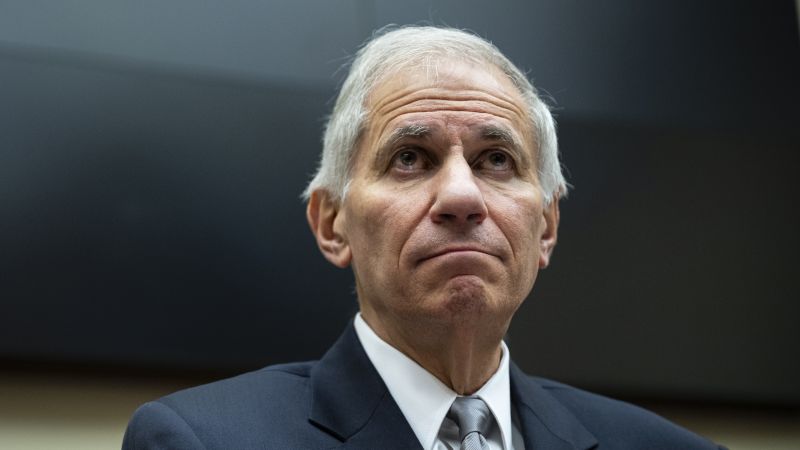Martin Gruenberg, head of the Federal Deposit Insurance Corporation, will step down following a scathing independent investigation detailing pervasive sexual harassment, discrimination and bullying at the agency charged with regulating the banking sector.
“In light of recent events, I am prepared to step down from my responsibilities once a successor is confirmed,” Gruenberg said in a statement on Monday. “Until that time, I will continue to fulfill my responsibilities as Chairman of the FDIC, including the transformation of the FDIC’s workplace culture.”
Gruenberg’s announcement of his intent to resign comes hours after Sen. Sherrod Brown, a top Democrat who leads the Senate Banking Committee, called for “new leadership” at the FDIC. Gruenberg joined the FDIC board of directors almost two decades ago. He’s served as chair of the agency for nearly 10 of the past 13 years.
President Joe Biden will “soon” announce a new nominee to lead the FDIC, White House Deputy Press Secretary Sam Michel said in a statement on Monday following the news. “We expect the Senate to confirm the nominee quickly,” he added. However, there’s no guarantee that will happen, since confirmation processes have been known to drag on for months or longer, at which point Biden may no longer be in office.
With Gruenberg remaining until a successor is named, there won’t be a situation where Vice Chair Travis Hill, a Republican appointee, automatically becomes chair, leaving the agency deadlocked with one other Republican and two Democratic members on the FDIC’s board of directors.
That would have likely stalled significant and controversial banking regulations, such as ramped-up capital requirements, from taking effect.
Michel said the administration is grateful for “his willingness to stay at FDIC until his successor is confirmed in order to continue to safeguard our nation’s financial stability during this time of transition.”
Sen. Tim Scott, the top-ranking Republican on the Senate Banking Committee, slammed Gruenberg’s decision not to resign immediately as well as Democrats for not putting more pressure on him to do so.
“This draw-it-out strategy makes it clear that this administration is prioritizing their political agenda over protecting workers,” Scott said in a statement.
The FDIC commissioned a report by law firm Cleary Gottlieb Steen & Hamilton, which ultimately spurred Gruenberg’s resignation. It confirmed the findings of a November Wall Street Journal investigation revealing a long-standing problematic culture. It did not find that Gruenberg alone was responsible for the issues described in depth in the report based on interviews with over 500 employees.
However, it documented several instances where Gruenberg lashed out at subordinates “particularly when being delivered bad news or conveyed views with which he disagrees.” That caused staffers to delay delivering news they feared would upset him. Gruenberg’s temperament “may hinder his ability to establish trust and confidence in leading meaningful culture change,” the report added.
Gruenberg testified before lawmakers last week in a previously scheduled hearing with other top financial regulators, saying he takes “full responsibility” for the findings of the report. “I also acknowledge my own failures as Chairman, both in failing to recognize how my temperament in meetings impacted others and for not having identified deeper cultural issues at the FDIC sooner,” he said.
The FDIC declined to comment beyond Gruenberg’s statement on Monday.
While most Democrats stopped short of calling for Gruenberg to resign or be replaced, many expressed outrage at the mid-May hearings in the House and Senate that Gruenberg testified at.
“I’m pissed off… If it was me in my office, I’d probably be run out,” said Rep. Gregory Meeks, a New York Democrat during the hearing. “It just saddens me greatly,” he added, referring to the findings of the independent report.
However, Democratic Sen. Elizabeth Warren labeled the calls Gruenberg received to resign “purely political exercise.”
“Your resignation would do nothing to improve the culture of the FDIC but it would give Republicans a veto over bank policy,” she said at the Senate hearing where Gruenberg testified. For her, it appeared it would be sufficient for him to see through implementing all the recommendations of the report, which he said he would.
This story has been updated with additional context and developments.
Read the full article here




